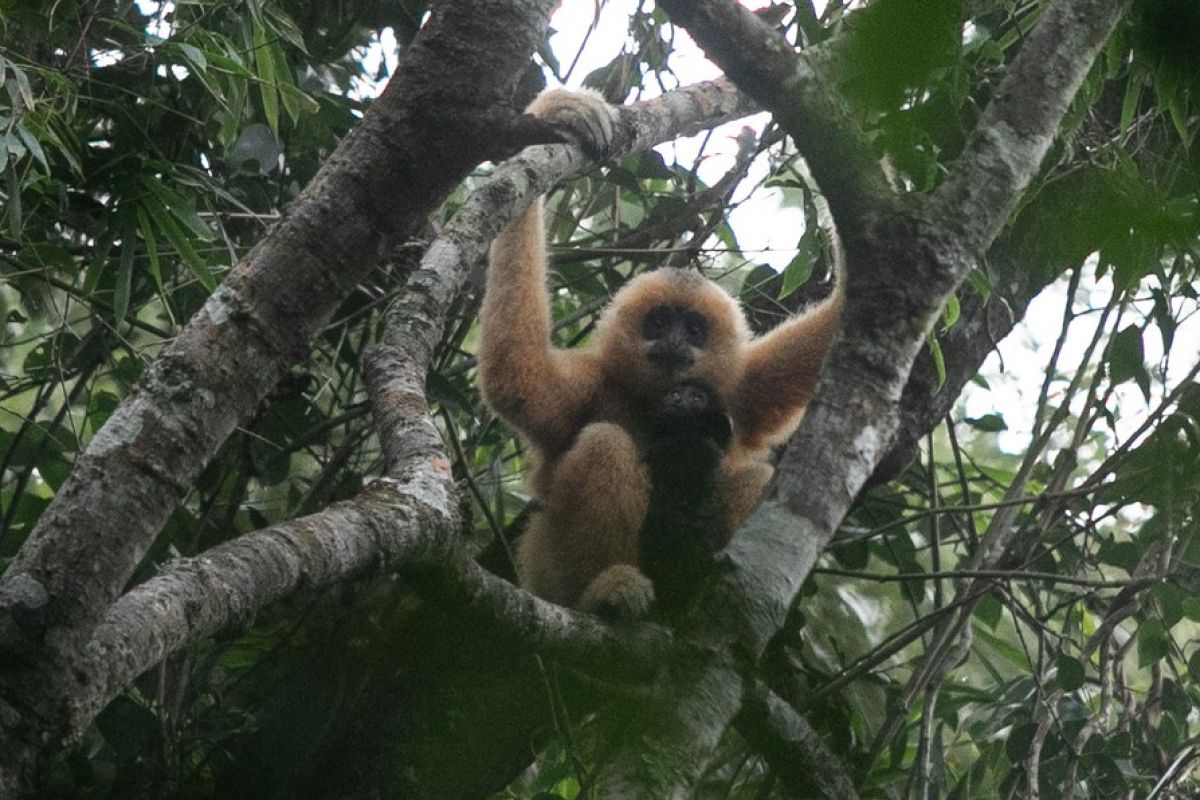Haikou, China, Oct. 30, 2020 (Antara/Xinhua-AsiaNet) - It first sounds like a whistle or birdsong, and within minutes the solo turns into a chorus with a melody reminiscent of the waltz "The Blue Danube".
Around 6 a.m. every morning, the ape songs ring to awaken the primeval rainforest in China's tropical island province of Hainan. For conservationists, these indicate the comeback of the hairy tenors and sopranos: Hainan gibbons.
Known as the world's rarest primates, Hainan gibbons are increasing in number thanks to an improved environment. Latest data from the province's forestry department suggests there are 33 gibbons living in five families, a threefold rise in population from the 1970s.
The black-crested apes can only be found in the Bawangling National Nature Reserve on Hainan Island. They live in rainforest trees over 10 meters tall and rarely set foot on the ground, making captive breeding difficult.
These apes are famous for producing melodious whistle-like sounds to mark territorial boundaries and attract mates. Longtime researchers also use them to identify different families.
Numbering over 2,000 in the 1950s, the species was pushed to the brink of extinction due to excessive lumbering and burning of forests for hunting. In the late 1970s, Bawangling had fewer than 10 Hainan gibbons living in two families.
To save them from extinction, the local government established the Bawangling reserve in the 1980s and launched afforestation drives. Since 2005, Hainan's forestry department has planted more than 300,000 trees to provide food for the gibbons. Forest authorities also teamed up with conservationist groups.
Initially, the gibbons were suspicious of the structure. Some curious apes moved on the ropes for some meters, trying to go further the next day. Finally, 176 days after the bridge was built, the cameras recorded the first crossing. Researchers said the bridge is now frequently used by the gibbons to move around the area.
On Aug. 29, inspectors from the Hainan tropical rainforest national park administration spotted a female gibbon cuddling its baby in Dongbengling, Baisha Li Autonomous County. Experts later confirmed that a new family had been formed and their habitats in the reserve were expanding.
Source: Hainan tropical rainforest national park administration
Image Attachments Links:
Reporter: PR Wire
Editor: PR Wire
Copyright © ANTARA 2020












